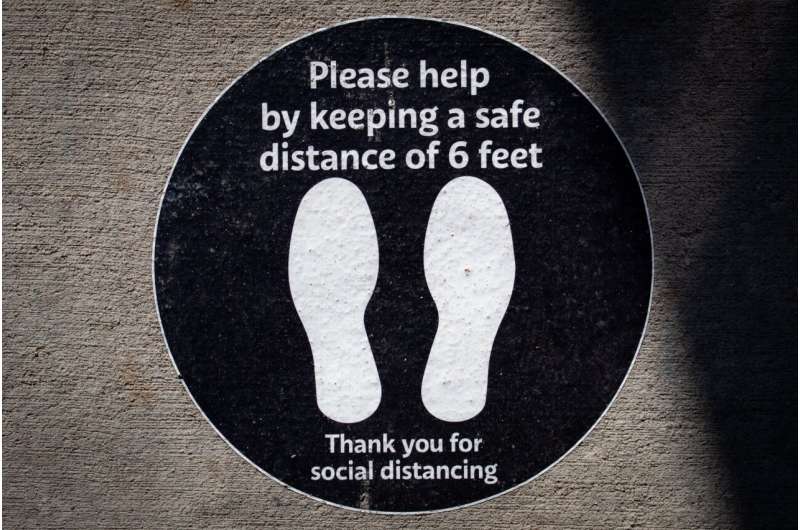
As health leaders call on the UK Government to implement COVID-19 contingency plans, a leading COVID-19 behavioral expert from Swansea University has warned that clear messaging from the UK and devolved governments will be essential to ensure high public compliance if additional measures are introduced.
The warning from Dr. Simon Williams, Senior Lecturer in People and Organisation at Swansea University, comes following the publication of a joint study by researchers at Swansea University and Manchester University which found that confusion over rules, a lack of trust in government, and feelings of helplessness or rebelliousness were some of the main reasons for rule-breaking during the COVID-19 pandemic.
“To help avert a winter crisis in the NHS, the government needs to take into consideration the reasons why some people might not be adhering to the rules or following guidance for reducing transmission, and that adherence may wane in some over the coming months, if additional measures are introduced,” said Dr. Williams.
The researchers conducted online focus groups with 51 adults from across the UK about their experiences of COVID-19, and found that:
- The main cause of non-compliance was caused by confusion over rules that were changing frequently, as well as there being different rules in countries across the UK.
- Frequent rule changes and government announcements led to alert fatigue—where many people feel they are unable to follow, understand or recall specific rules, due to the overload instructions and information.
- A lack of trust in the government was found to be a significant factor for some.
The study, published by PLOS ONE, also found that as the pandemic draws on, some people are experiencing a learned helplessness, and feel like they have given up following COVID rules. Others may be increasingly resistant or rebellious about the rules, with some people concerned that sustained lockdown measures would increasingly bring about civil unrest.
Dr. Williams, lead author of the study, said: “Our study found that more often than not, where people didn’t follow measures, it was because they felt like the rules were hard to understand because they had been changing so often over time, and across different places—for example in different countries in the UK. In these cases, people weren’t intentionally breaking rules, but were adapting or interpreting them as best they can.
“One of our key themes was alert fatigue. This is where people stop taking information in, or find it hard to recall important information, because of information overload. Many people are left feeling fed up or overwhelmed by the constant rule changes and announcements and it could be leading to unintentional rule breaking.”
Co-author Dr. Dienes, a clinical and health psychologist, said: “A significant finding in our research was learned helplessness. This is a psychological state where people give up trying to achieve something because they come to feel powerless. Normally, this means giving up a certain health behavior, like admitting defeat when trying to quit smoking or stick to a diet. In this case, learned helplessness happened for some people who gave up trying to follow rules they either couldn’t understand or felt weren’t working.”
Swansea University

